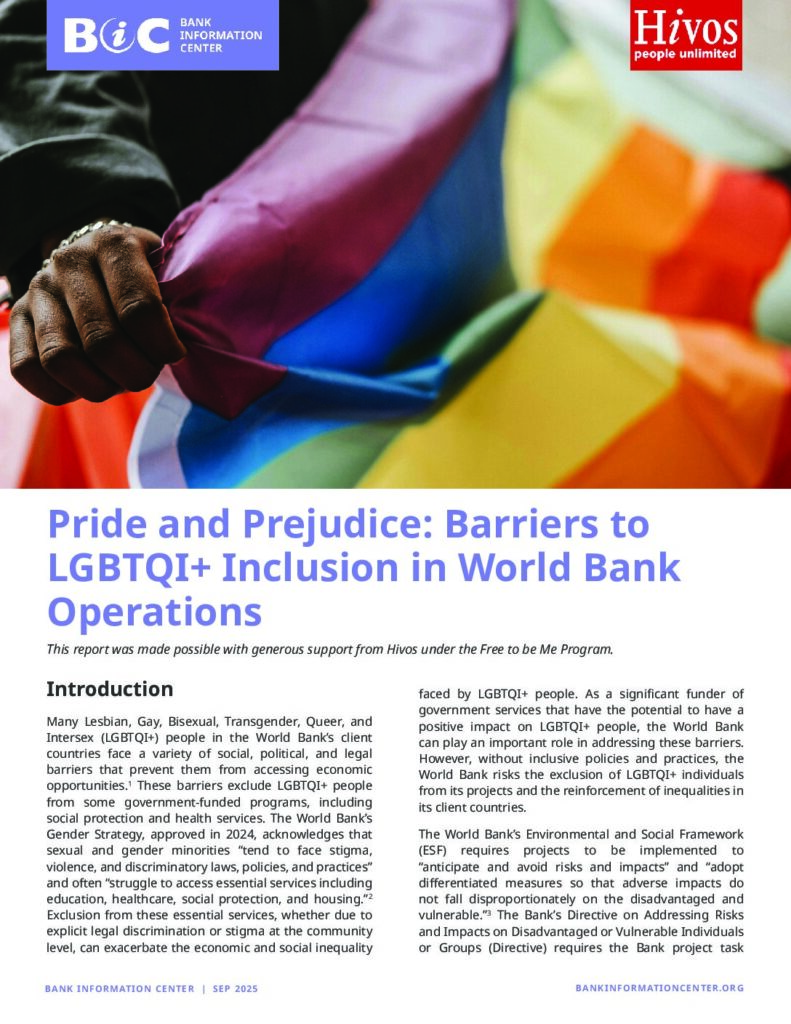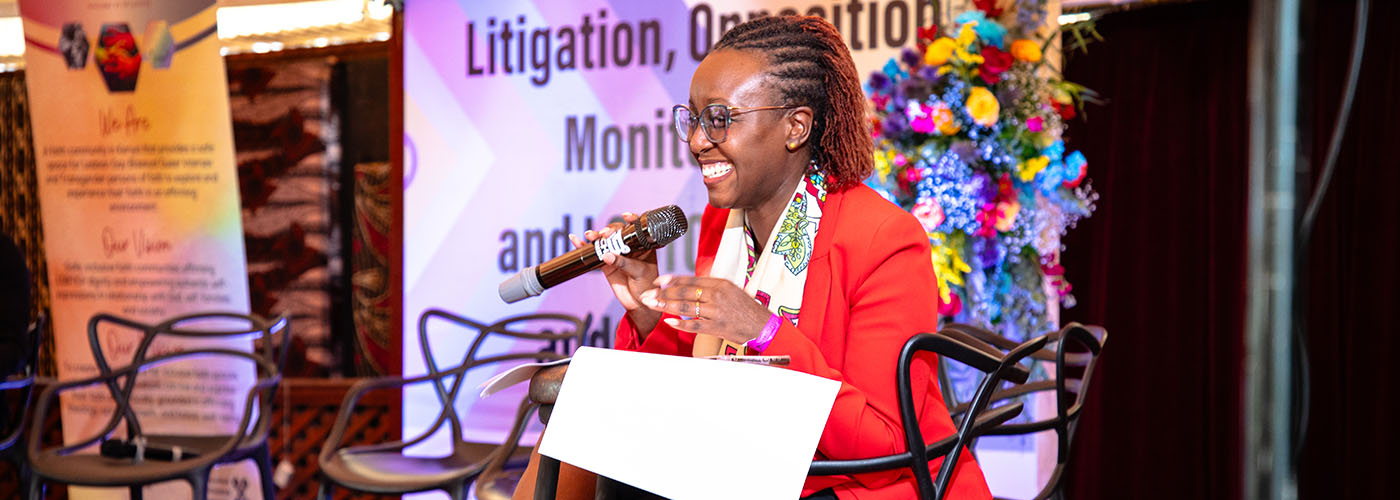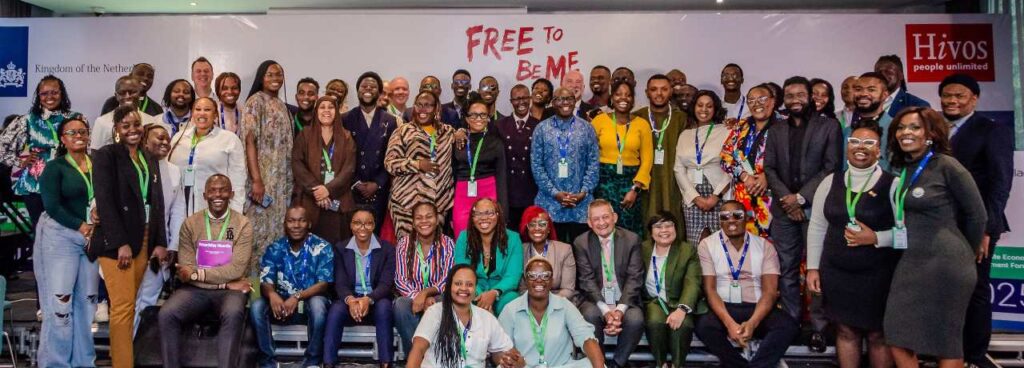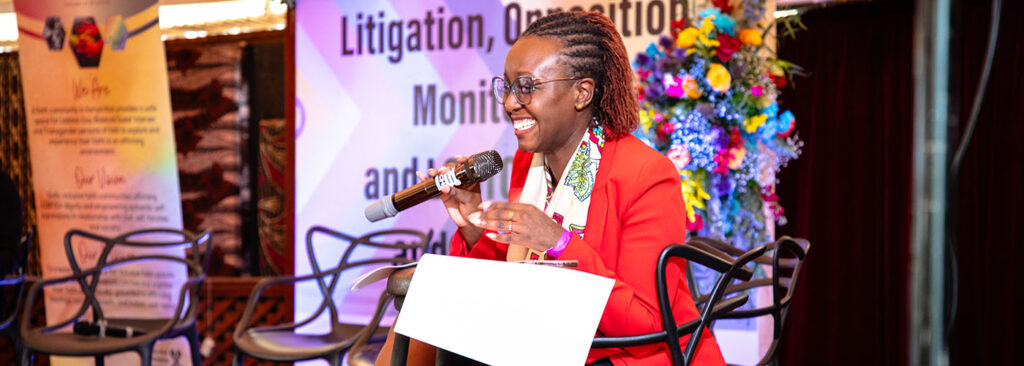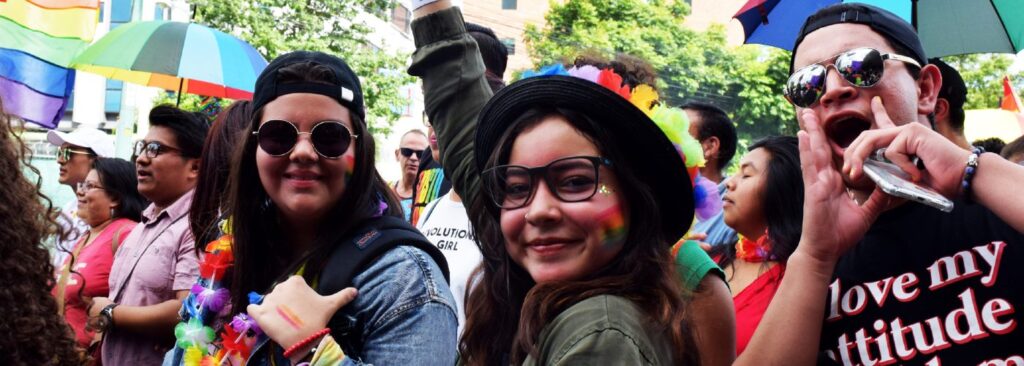By Susan Githaiga, Global Program Manager, Free to Be Me
At Hivos, we believe that inclusive development is not only a matter of justice, but also a precondition for sustainable progress. That’s why, through our Free to Be Me program, we researched with the Bank Information Center to what extent the World Bank takes the realities faced by LGBTQI+ communities into account in its operations.
Our newly released report, Pride and Prejudice: Barriers to LGBTQI+ Inclusion in World Bank Operations, highlights a critical truth: left on their own, large-scale development projects risk reinforcing the exclusion and discrimination that LGBTQI+ people already endure.
With input from partners in Kenya, Uganda, Nigeria, Ghana, Indonesia, Mozambique, and the Philippines, the report documents how the World Bank’s social protection and health projects often miss opportunities to tackle systemic barriers for LGBTQI+ people. In countries with discriminatory laws, LGBTQI+ people are excluded from project consultations, grievance mechanisms, and project benefits, leaving them vulnerable and voiceless. Even without discriminatory laws, they are still excluded by stigma, lack of outreach, and institutional blind spots.
Calls to action
The findings are clear: no development finance institution can claim to promote equality if it overlooks the very communities most at risk of being left behind. The report calls on the World Bank to:
- Embed safeguards from the start by designing projects that anticipate risks of discrimination and actively monitor how inclusive measures are working in practice.
- Expand awareness and accessibility of alternative grievance mechanisms beyond those offered by governments to ensure LGBTQI+ communities have safe and trusted avenues to raise concerns.
- Be sensitive to country realities when engaging with stakeholders so LGBTQI+ organizations and individuals can participate meaningfully and without risk of reprisal.
For us at Hivos, this is about ensuring that multilateral institutions like the World Bank live up to their mandate of reducing poverty and inequality for all people. LGBTQI+ individuals are not peripheral to development; they are central to the fabric of societies striving for resilience, justice, and opportunity.
We invite you to read the report and join us in urging the World Bank to take these recommendations seriously. True inclusion will not happen by accident. It requires deliberate choices, accountability, and the courage to confront prejudice in all its forms.
